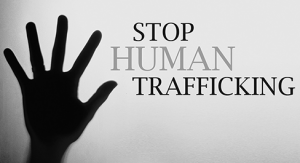Ghana urged to redouble efforts to end human trafficking
 Ms Anita Budu, Director, International Justice Mission (IJM), West Africa, says efforts must be doubled to end human trafficking.
Ms Anita Budu, Director, International Justice Mission (IJM), West Africa, says efforts must be doubled to end human trafficking.
She noted that among the children interviewed in a commissioned research by IJM Ghana, in three fishing districts around Volta Lake in 2022 found that about 38 per cent were likely victims of human trafficking and an additional 45 per cent were engaged in likely exploitative child labour.
That, she said showed that the prevalence had reduced compared to the previous findings from the same area in 2013 with a prevalence of about 58 per cent, however, there was more to be done.
Ms Budu made the call at the training of stakeholders on Trafficking in Persons (TIP) reporting organised by the Ministry of Gender, Children and Social Protection, through the Human Traffcking Secretariat (HTS) and supported by IJM.
The two-day training is to sensitise and reorient stakeholders on the issues of human trafficking and its reporting.
It brought together representatives of law enforcement agencies, the Economic and Organised Crime Office (EOCO), Ministry of Foreign Affairs and Regional Integration and other Government agencies.
The Director noted that the collaborative efforts of stakeholders over the years in dealing with trafficking issues seemed to be yielding positive results.
“This is not a problem anyone can solve alone. We look forward to collaborating with government and other Civil Society Organisations (CSOS) to conduct wider and more in-depth research in the near future to help us gauge the impact of our work in ending human trafficking in Ghana,” she stated.
Ms Budu reiterated IJM Ghana’s commitment to collaborate with Government and all stakeholders to ensure the successful implementation of the new National Planof Action for the elimination of Human Trafficking in Ghana.
The Director commended the Ministry through the Human Trafficking Secretariat for its proactiveness in organising the training, which was key in helping the country to report reliable data that would be beneficial in crafting relevant policy interventions.
Ms Abena Annobea Asare, Head, HTS, said victims of adult sex trafficking were relatively young, ranging from 15 to 30 years whereas perpetrators were usually older.
According to the HTS, the number of human trafficking victims in Ghana increased to 831 in 2021 as compared to 587 the previous year and the number of investigations also increased from 87 in 2020 to 108 in 2021.
Ms Asare said human trafficking was intertwined with reqular and irregular migration, and that most people wanted to migrate with proper documentation but they were exploited at the destination country through deceit and other characteristics of trafficking.
She stated that previously, more men were found in the irregular form of migration, however, women were at par with them now with most female perpetrators being victims in the past.
The Head attributed the prevailing cases of human trafficking to poverty, desires for wealth, growing demand of services of victims and the continuous supply of victims from the origin and the destination.
Ms Asare said the negative impacts of human trafficking were enormous, including loss of life, damage to mental health, control of victims and gender-based violence.
Source: GNA
